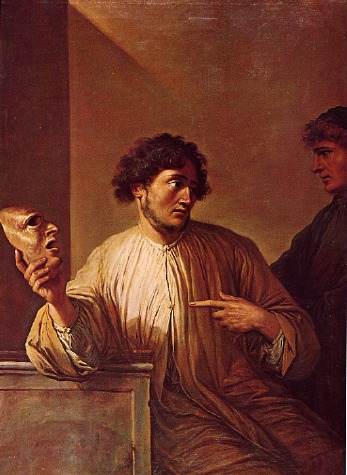

ITAL 407-507 - Italian Theory - Fall 2017- Prof. Massimo Lollini
Is there a distinctive character of Italian theory? What are the original features of the “Italian difference”? Is there a common thread that unites contemporary Italian biopolitical theory and the origins of Italian literature and philosophy?
We will start with a brief overview of the Italian approach to contemporary biopolitical issues from Giorgio Agamben to Roberto Esposito. Then we will shift our focus from the most pressing current events to a broad analysis of the protagonists that invented the peculiarity of Italian thought and literature through the centuries.
The course is organized in modules; students may choose to concentrate their interpretative efforts on two of the five modules: 1) The Origins: Middle Ages and Humanism (Dante, Pico, Leonardo); 2) Emergence of Biopolitics from Machiavelli to Cesare Beccaria; 3) Antinomies of the Moderns: Vico, Cuoco, Leopardi and De Sanctis; 4) Biopolitics and Geopolitics in Gramsci; 5) Biopolitics and the Principle of Impersonality (Agamben, Esposito); Gender and Queer theory (Putino and Di Stefano).
The course is offered in English or in Italian depending on the enrollment. Notwithstanding the foucus on Italian theory the syllabus does include a comparative perspective, a discussion of Heidegger in relation to Italian Humanism, and readings from Simone Weil, Benveniste, Foucault, and Dussel among others.Graduate students will choose which of the four MA periods to cover with this seminar.
This course is a combination of lectures and seminars. Requirements include: a) Active participation to the weekly discussion; b) 1 short paper for each of the two modules chosen or one longer paper for one specific module. Students may discuss with the teacher the possibility of replacing one of the papers with a translation from Italian to English of one of the essays included in the bibliography.
Salvator Rosa, Allegoria della menzogna, 1650ca.